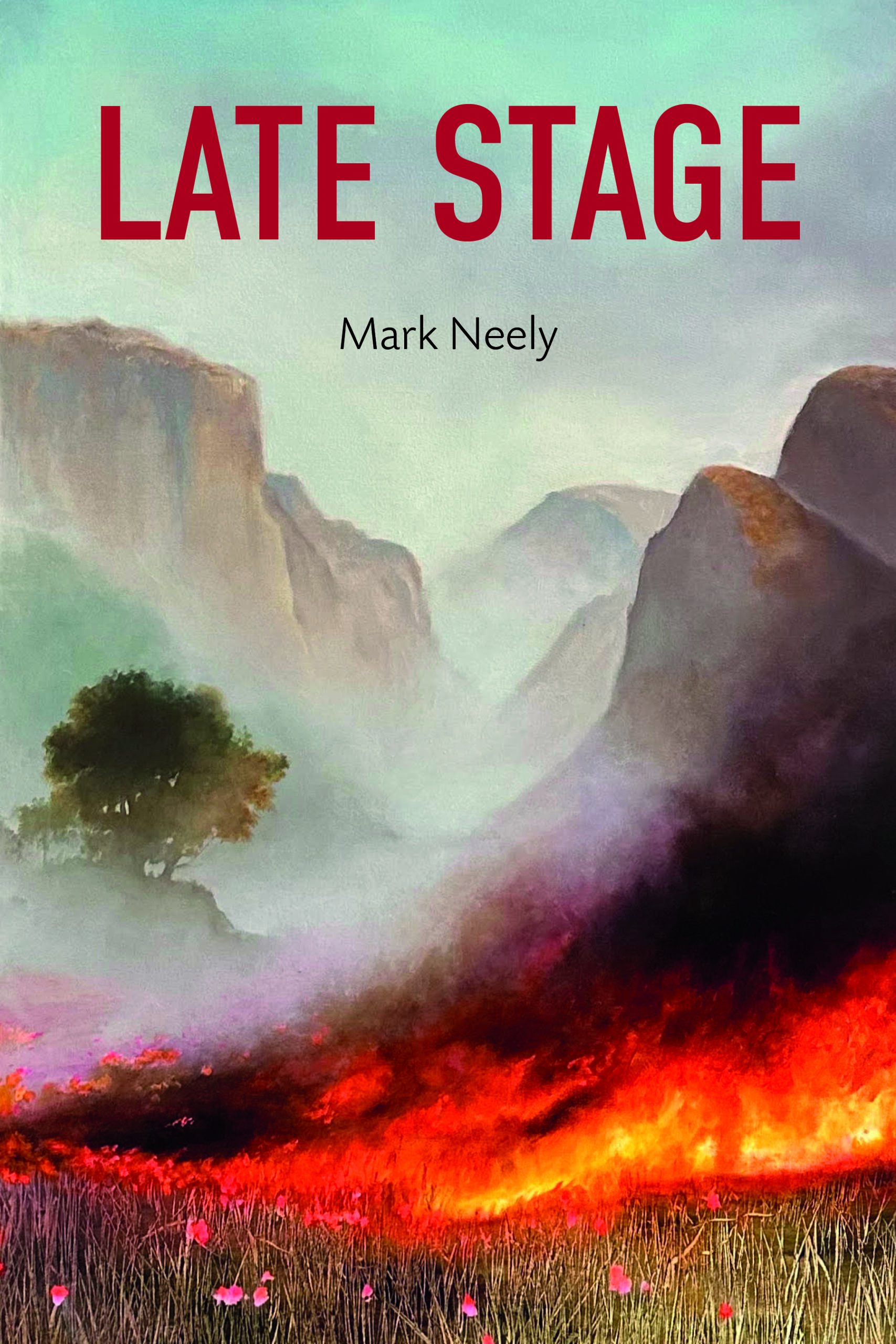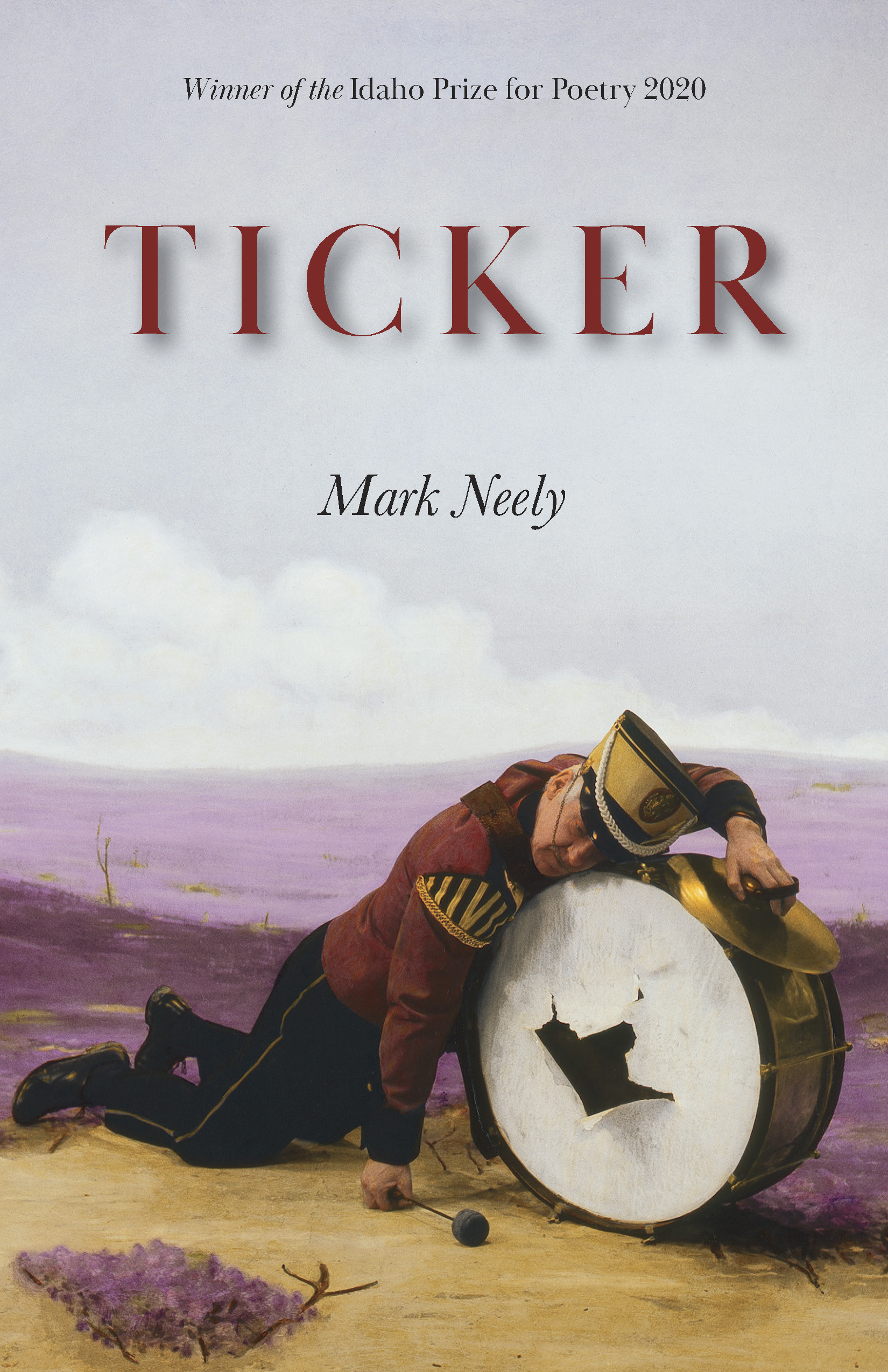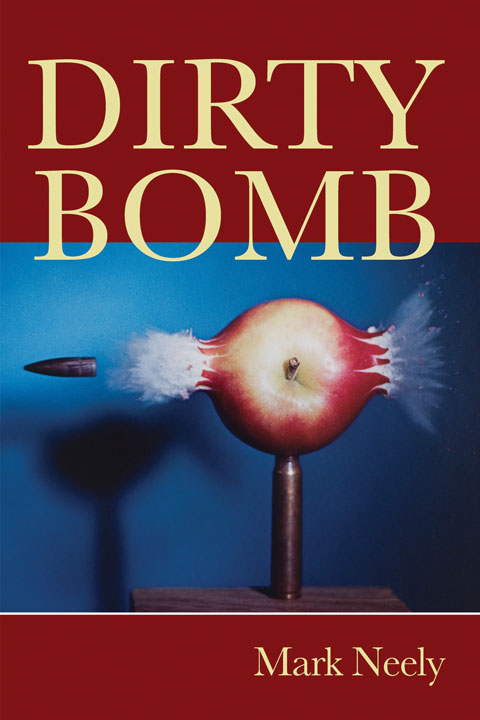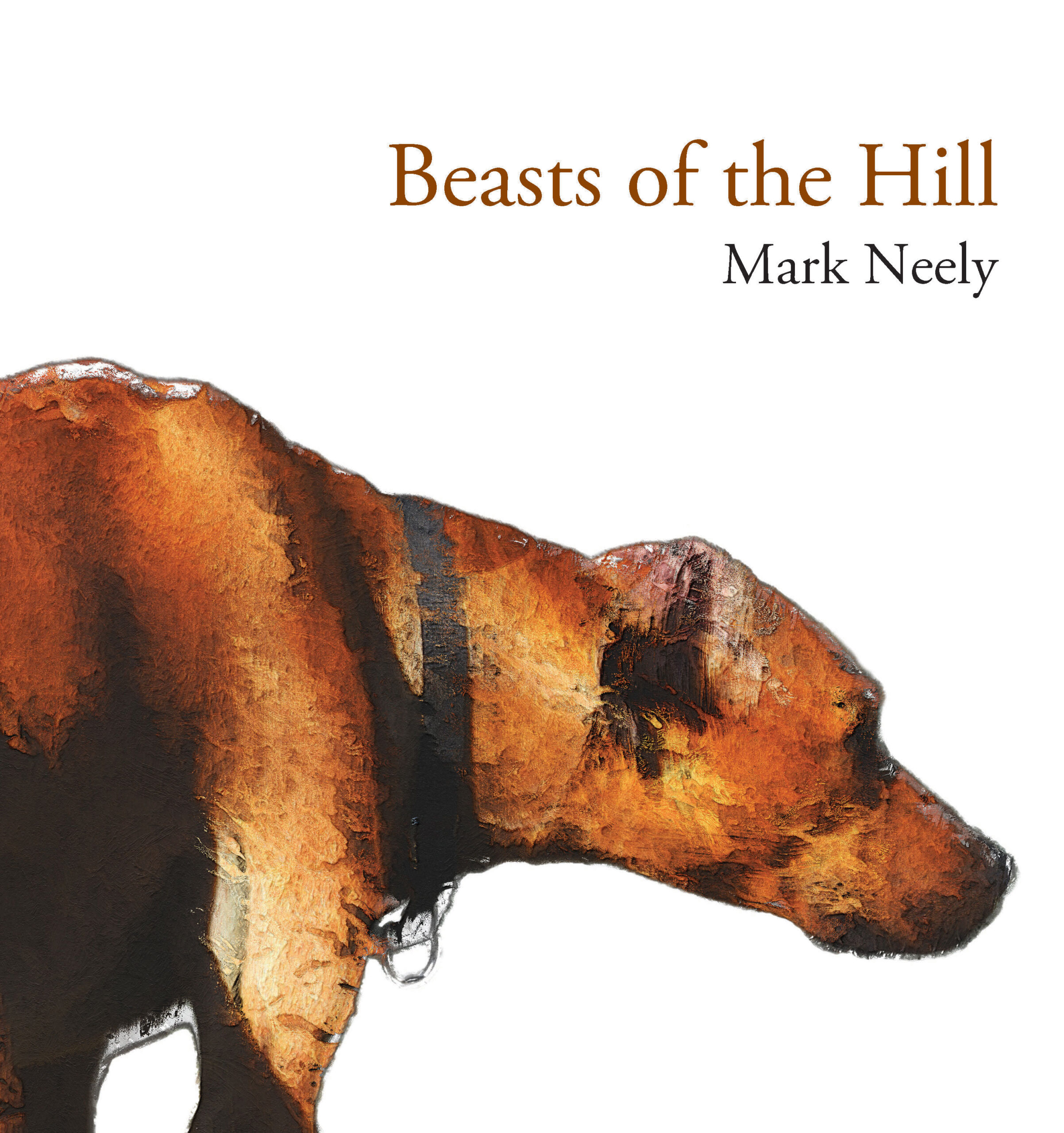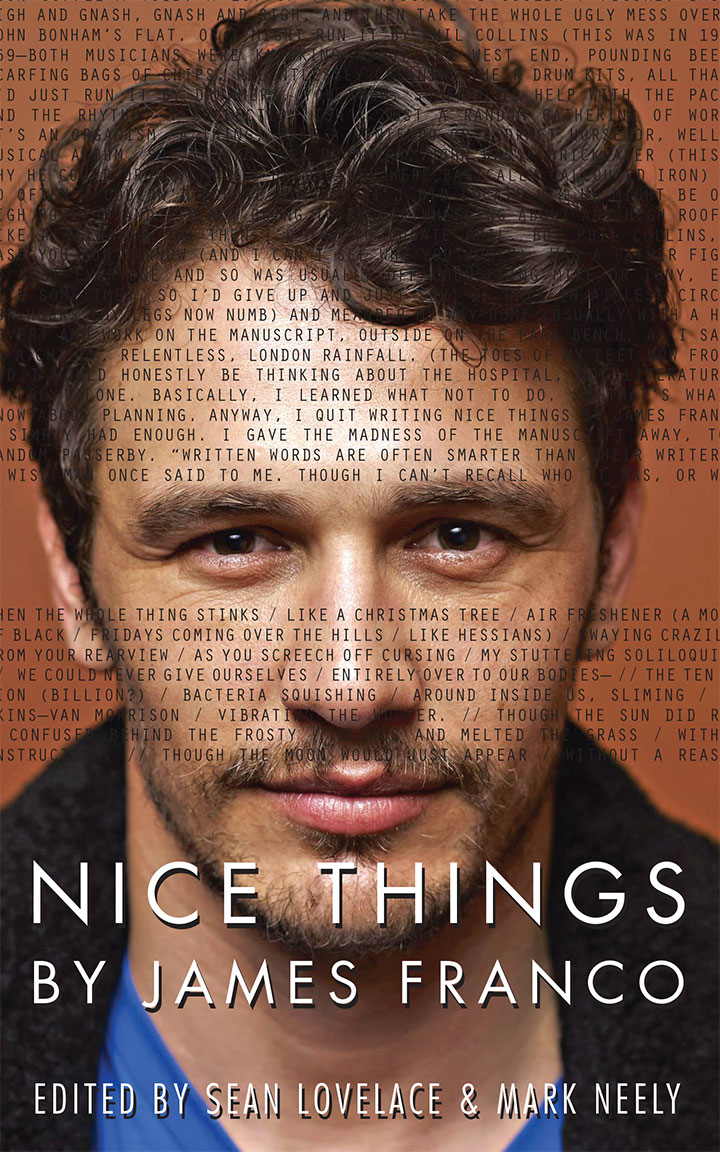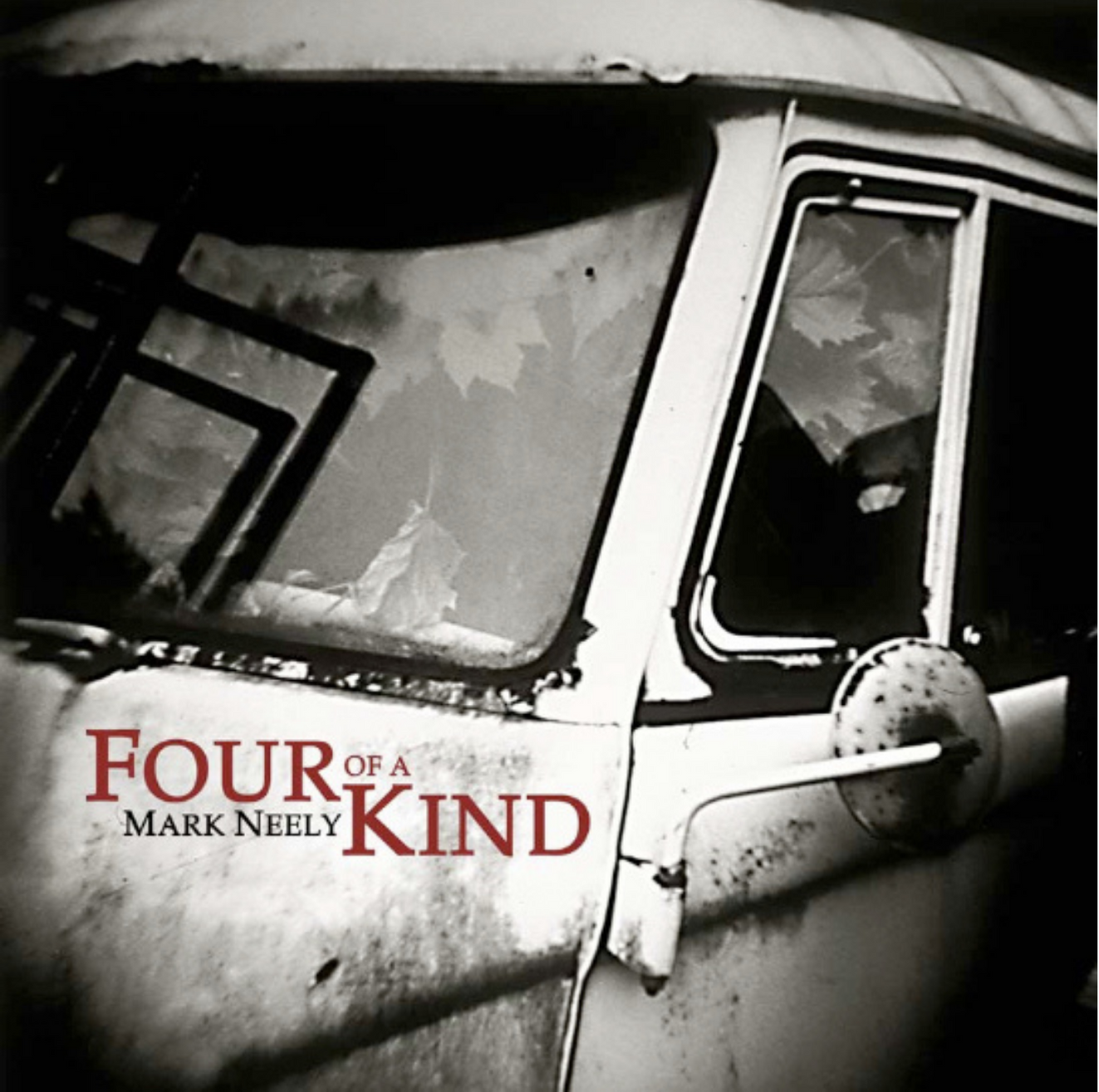Books
Late Stage, 2024
What a remarkable sensibility lives in Mark Neely’s Late Stage, at times cynical and witty, at times filled with awe at an America that is at once beautiful and uncanny and more than a little frightening. Here is ‘the mayor’s blue campaign sign in the gun store window.’ Here is a ‘Tupperware blue sky.’ Here are ‘turkey buzzards hunched like crash victims on the water tower’s whitewashed railing.’ Neely’s is a mind keen in observation, able to construct lines of poetry that slice into each other, that make sparks. More than that, his work has a kind of musical dexterity and intelligence that I rarely encounter, always revealing itself on its own energetic and brilliant terms.
—Kevin Prufer, Final Judge, Jacar Press Full-Length Poetry Contest
Ticker, 2021
Ticker contains almost everything—religion, calamity, politics, race, love, children, the Challenger disaster, Taco Bell, Oliver North, CVS, a main character named Bruce. In these poems, which are all the time moving between the cynical and the ecstatic, Neely never once turns his half-stare half-glare away from this strange, brutal country of ours.
—Jackson Holbert, Final Judge for the Idaho Prize 2020
“Start with a hole in his chest.” In this concoction of what—fictional biography and alter ego?— that early line sets the stage for poems that don’t fill so much as explore the jagged spiritual hole that torments a man named Bruce. This relentless autopsy of a character is also an exploration of the hollowness of a culture that offers few means to achieve a sense of attachment or purpose, that leaves him largely on his own and feeling that there “are nothing but / desperate Bruces / all the way down.” The pressure of these poems creates a space where beauty and grace become craved, so when they show up, small moments and acts, such as when a blue heron stands “regally in the mouth / of a sewer pipe,” carry greater force and poignancy within Bruce’s world, and ours.
—Bob Hicok, author of Red Rover Red Rover and Elegy Owed
Dirty Bomb, 2015
Open these pages and listen in on the twenty-first century: beheadings on the internet and sleeper cells in Jersey, old girlfriends with their Facebook posts of triumph, forced plane change in Atlanta, no matter the place you imagined you wanted to go. “Pine trees shivering//like addicts on the mountain.” So how to explain the rush of joy and consolation these brilliant, savvy poems afford? To be sure, sheer mindfulness – and there’s mindfulness in abundance here – is a comfort in an age of oblivion and denial. And the music is terrific: Mark Neely has a very fine ear. But something larger is at stake as well, something about the noticing that makes it matter: I can find no better name for it than heart. Open these pages. Take heart.
—Linda Gregerson
These poems move along a semi-fragmentary path from the present state of national affairs to the near past—let’s call it the last days of the Reagan Era. What has happened to American culture in those 30 gilded years? What has happened to the human soul? As Dante proved, sometimes a poet needs to wander the provinces of Hell to find the truth. Mark Neely has done some powerful wandering. This is a searing and necessary book of poetry.
—Maurice Manning
If James Wright had grown up listening to R.E.M. and watching Twin Peaks, he might have written the gorgeously disappointed and disturbingly glorious poems in Mark Neely’s Dirty Bomb. Neely renders contemporary America from the inside out. And while this rendering begins in collective nightmare, there’s redemption enough in Neely’s humor, his sheer inventiveness, and the deep sympathy with which he treats his subjects. Poems such as “A woman in Dior,” “I step away from the oil fires” and “Tonight I am kicking down the doors” are built to last, and they will.
—Peter Campion
Beasts of the Hill, 2012
Like the seventeenth-century Dutch painters who divided the space of their framed canvases into repeated geometries of rectangles and squares and light, Mark Neely writes poems that play four-square with poetry—and with the heart. And like those Dutch interiors, his poems are at once intimate and timeless. They issue from a mind as fierce as the hawks “who circle the dead earth, waiting for some small thing to move them.” These are poems with a “calling”: they paint our lives in twenty-first-century light, “half falling, half in flight.”
—Angie Estes
In Beasts of the Hill, Mark Neely works in small spaces where the slightest moves have seismic consequences. The acoustics are sensational, and the modest and laconic gestures of the poems…are also vehicles for the flights and fugues of a “glorious attack.” Neely’s lines can be fundamental or extravagant, sober or infused with metaphysical light. Wonder and “furious desire” are the engines that drive these poems, which shatter distance, space, and time into manifold presences both intimate and strange. Neely has the chops and the voice to sing the blues.
—Bruce Smith
Mark Neely’s insistent, persistent meditations—multiple takes on everything from flights to fences, dirt to dreams, wheels to woods, fields to falls, threads to the dead—add up to nothing less than a mandala of the human spirit. Here is a companion to take you on a walk, “shoulder over foot, shoulder over foot,” into the prairie, into the unconscious, into the abyss, one staggeringly powerful image at a time. I need this book.
—Robin Behn
Nice Things by James Franco, 2012
This is a work of fiction. Names, characters, businesses, places, events, and incidents have been fed through the elaborate machine of James Franco’s imagination. Though passages relating to health, fitness, and creative writing do draw on the author’s extensive education, they should not be substituted for the medical advice of physicians.
Four of a Kind, 2010
The world viewed through Mark Neely’s window-pane form is bleak and fallen, driven by a distinctly American strain of banality. Yet, the very elegance and order of thought in these poems offers a subtle gesture of resistance. Such resistance is further indicated by the poet’s wry use of old-fashioned craft—bull’s-eye imagery and poised similes flutter quietly through the collection. Neely’s quadruple vision surely clarifies our chintzy modern desperation, but that same vision also isolates a moment or two when our world is still defiantly charged with its old wonder and beauty.
—Maurice Manning
Four of a Kind is a book of marvelous precision and mysterious distortion; reading it is sometimes like looking through squeaky-clean plate glass, sometimes through the wavy glass of old farmhouse windows.
—Kathleen Kirk, Prick of the Spindle

